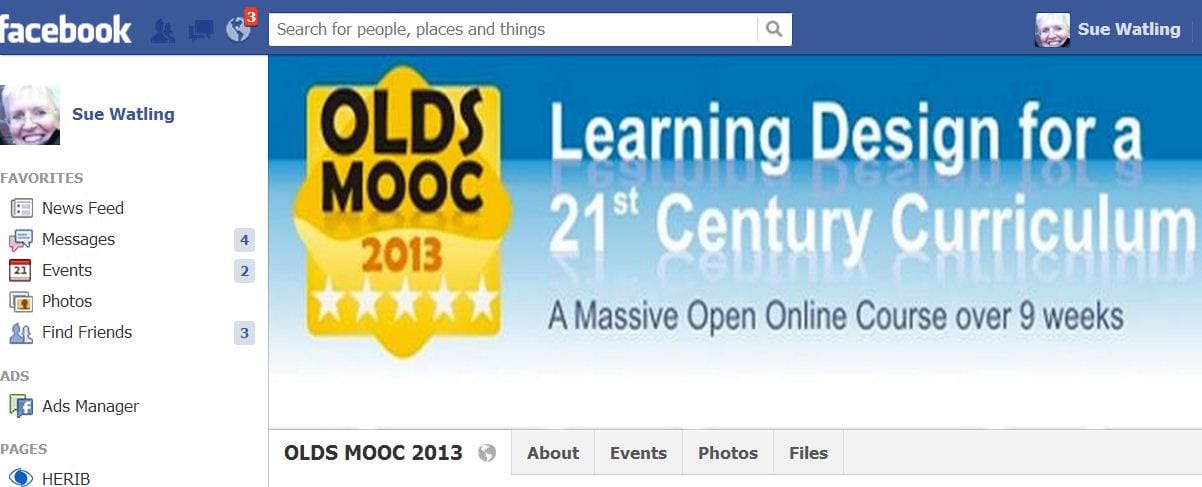Week 2 has been an exercise in balance. In stretching and being stretched. OLDsMOOC; where experience is all – this is learning but not as we know it. Context is critical to success.
OLDsMOOC operates on multiple levels; the challenges of the technology, the keeping up with comments and discussions, accessing the range of learning materials, making notes, critically reflecting and then – finally – actively engaging with the learning subject. Deconstructed in this way, it doesn’t look so different after all. What exactly is it presenting the challenge?
At the end of Week 2 I’m finding my way around; much the same as being on a new campus or in a new town. The strange is becoming familiar. The challenge has been working through the materials and learning activities. But there’s nothing new about this either. Any learning experience has content and OLDsMOOC is flexible, it’s not as though the assessment is critical so what exactly is my problem? Because there is a problem, and as Week 3 begins, I’m realising it’s more about me than the MOOC. It’s about how I manage my workload and respond to new experiences. In particular it’s about reaching a point where I’m no longer keeping on top of the essentials. I’m not blaming the MOOC; it just happens to be the activity skewing the balance to a point where some reassessment is required.
So why do a MOOC? Firstly, why not? The potential challenge of free open educational opportunities can’t be ignored. Media have hyped up the implications, presenting them as threats as much as opportunities. The MOOC word has embedded at a speed symptomatic of a twitter trend or viral email. Concepts associating worth with monetary value are being challenged by MOOC openness where are experts are seemingly giving away their expertise for free and networks of subject specialisms emerge out of nothingness. ‘Everything solid melts into air’ is reversed. Out of virtual space comes the solidity of connections, working groups, the #oldsmooc hashtag. Far from the self-destruction of modernity, MOOCs are creating realities at a speed and intensity which has to be experienced to be evaluated. No one knows there they’re going and to be part of the journey is exciting.
So I’m still MOOCing…
Hanging on in there…
Knowing some critical reflection on work load balance is required, but this insider experience of the digital revolution is too important to be ignored. I’ve might have only cursorily glanced at Personas, Force Maps and Ecology of Resources, missed the Google Hangout and not yet watched the Week Two video but in terms of learning, OLDsMOOC is invaluable. Bring on Week 3…
